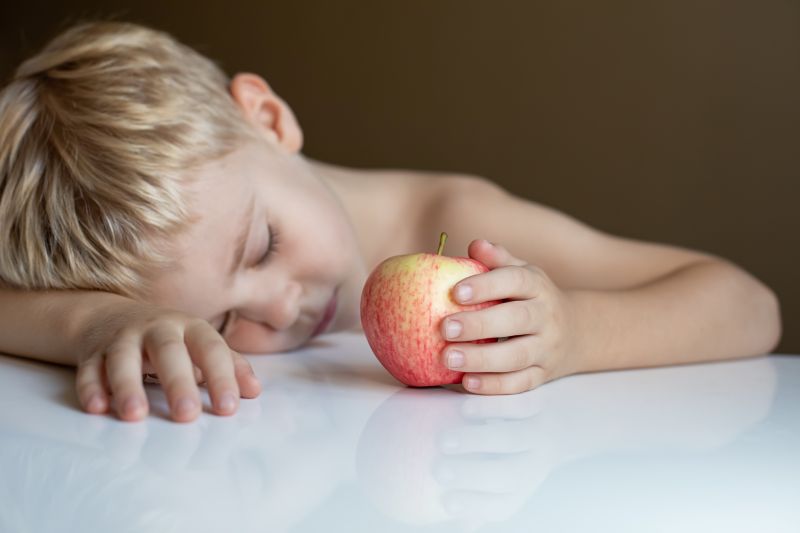Sleep Better by Balancing Your Blood Sugar
Let’s talk about something we all love: a good night’s sleep. For some of us, it’s fleeting and perhaps you’ve “tried it all”. But did you check your diet? Carbohydrates – specifically glucose – plays a key role in getting better sleep. Yes, glucose—your body’s primary source of energy—has a direct impact on your brain, your mood, and the quality of your Zzz’s.
Glucose: The Brain’s Favorite Fuel
Every cell in your body uses glucose for energy, but your brain is especially hungry for it. Our brain uses approximately 60% of the glucose we consume, yet it’s only 2% of our body mass! It works hard during the day but while you sleep, your brain is still awake—clearing waste, storing memories, and balancing hormones. That all takes fuel.
Blood Sugar Swings Can Disrupt Everyone’s Sleep
When your blood sugar is steady, your brain can do its nighttime job efficiently. But if your glucose crashes overnight, your body may release stress hormones like cortisol to bring it back up—and guess what that means? You wake up. Alert. Irritated. Possibly hungry. Definitely not rested.
Whether you’re dealing with high stress, late-night snacking, or just a wild day, rollercoaster blood sugar can keep your nervous system on edge. Spikes from sugary or refined carbs (especially close to bedtime) can lead to those middle-of-the-night wake-ups no one enjoys.
If you’re male, this might look like early morning grogginess or trouble falling asleep even when you’re tired. For women—especially during perimenopause—this issue can become more noticeable.
Hormonal shifts during this stage affect how your body processes insulin. Estrogen and progesterone play a key role in blood sugar regulation. So, when they fluctuate (which they do, wildly), glucose becomes harder to manage, leading to more sleep disturbances, night sweats, or wired-but-tired feelings.
When Should You Eat Glucose to Sleep Better?
Here’s the empowering part: you don’t have to eliminate carbs. In fact, trying to cut them completely often backfires. It’s all about timing and balance.
Try these strategies:
- Front-load your carbs: Your body is most insulin-sensitive in the morning and early afternoon. That’s the ideal time to enjoy fiber-rich fruits, sweet potatoes, whole grains, or other quality carbs.
- Balance your meals: Pair your carbohydrates with protein, fat, and fiber to keep glucose steady throughout the day.
- Consider a bedtime snack: If you tend to wake up in the middle of the night, a small snack like a slice of apple with nut butter or a few berries with Greek yogurt can help prevent blood sugar drops while you sleep.
For the Ladies in Perimenopause…
If you’ve noticed your sleep is changing—falling asleep is harder, you’re waking up hot, or you feel “tired but wired”—it’s not just in your head. It’s likely in your hormones and your blood sugar.
Paying closer attention to how you eat during the day can have a huge impact on how you sleep at night. Small shifts really can help your body (and brain) recalibrate.
Big Takeaway For Balancing Your Blood Sugar
Glucose isn’t the enemy—it’s essential. But the way we consume it, and when, can mean the difference between deep, restorative sleep and tossing and turning.
Whether you’re supporting your body through hormonal changes, managing stress, or just trying to feel more vibrant during the day—glucose plays a big role.
Eat smarter, sleep deeper.
If you’re ready to make lasting changes, connect with Health Coach Amber Stevens at Boundless Body and Wellness in Arvada. Amber specializes in mindful eating and personalized coaching to help you find the right balance for your body, your lifestyle, and your sleep. She is also a PN L1 Certified Sleep, Stress, and Recovery Coach, giving you the support you need to feel your best inside and out.



